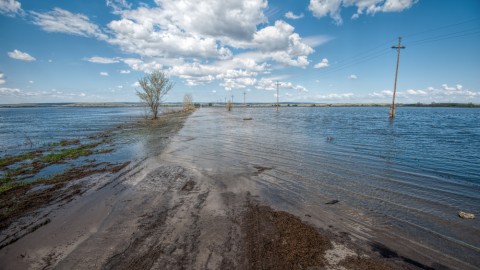A joint statement issued by an array of Australia’s major energy stakeholders called on the COAG Energy Council to approve the Energy Security Board’s framework for the National Energy Guarantee (NEG) and commence changes to the National Electricity Law.
Signatories, including the Australian Energy Council, Clean Energy Council, Energy Networks Australia, Jemena and AGL, cited concerns about policy uncertainty affecting electricity investment beyond the current national Renewable Energy Target, and stated the need for an efficient and durable mechanism that integrates energy and climate policy.
The statement acknowledged the deep political disagreement over targets and stated that compromise will be needed from all sides to deliver the greatest achievable certainty.
“Success will likely require a flexible approach, with a pathway for governments to amend targets subject to an adequate notice period and proper process,” the statement said.
“Together with COAG agreement on the Guarantee mechanism, such a compromise would sharply reduce policy uncertainty and help the electricity sector deliver affordable, reliable and clean energy.”
The joint statement asserted that the final proposed mechanism has been improved by stakeholder feedback through the Energy Security Board’s consultations, and that no other options offer both better policy and more political durability.
Signatories urged approval of the NEG as soon as possible to avoid the risk of the plan being scrapped by political turnover, affirming that States and Territories could approve the plan without agreeing to the Commonwealth’s proposed emissions targets, which are a distinct question that will be debated in the Federal Parliament.
“Nothing in the Guarantee will prevent the States and Territories from pursuing additional renewable energy or emission reduction policies if they so decide, though they should ensure any policies they do pursue are well coordinated and offer net benefits,” the statement said.
The Australian Energy Council (AEC) voiced its agreement in its own release, which warned against the National Energy Guarantee being derailed by the separate debate on emissions reduction targets.
“We are now in very real danger of losing sight of what is at stake at Friday’s COAG Energy Council meeting,” the AEC’s Chief Executive Sarah McNamara said.
“The COAG Energy Council should discuss and approve what is before it on Friday — the general design of the NEG and the specific enabling changes to the National Electricity Law.”
Meanwhile, the NEG continues to draw debate from a number of governments and associations.
A release from the ACT Government affirmed its intention to use the Energy Council meeting on Friday 10 August to seek significant improvements to the NEG. The ACT Cabinet claimed that the current emissions targets in the NEG are inadequate and conflict with the state’s plan to be powered by 100 per cent renewable electricity by 2020.
“We can only support a national energy policy that genuinely advances renewable energy, and energy affordability. The Commonwealth’s proposed NEG contains serious problems that need to be addressed or consumers and the climate will both lose out,” said ACT Chief Minister Andrew Barr.
Further criticism came from the Smart Energy Council, who issued a statement calling the NEG a “dud” and urged energy ministers not to endorse the NEG mechanism or emissions reduction target. The not-for-profit advocacy group claimed that the NEG suffers from a number of flaws, including inadequate reduction of coal pollution, limited encouragement of renewable investment, and restricted changeability.
In contrast, the Clean Energy Council (CEC), while also unsatisfied with the current emissions targets, intends to focus on the debate later in federal court and says that the current priority should be to approve the NEG before it loses momentum.
“We have consulted extensively, and we believe the best chance of delivering bipartisan energy policy for our industry lies in the COAG Energy Council agreeing to progress the NEG architecture – with some important tweaks,” said CEC Chief Executive Kane Thornton.
“We can then begin to properly debate the emissions reduction target and ensure it is raised to a more sensible level which reflects the ability and willingness of the energy sector to significantly cut its emissions intensity.”
















